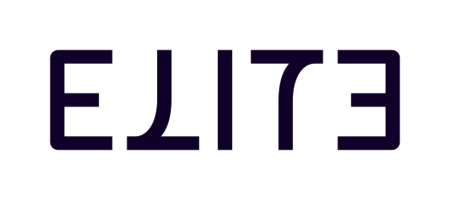
If you’re searching for tools to help in your firm’s accounting, here’s a suggested list of legal practice accounting software and their essential features

Previously, we were so used to doing things manually and on paper; but gone are the days where everything must be done this way. The same is true when doing accounting for lawyers and law firms, as there are now many legal practice accounting software to help them. In this article, we’ll discuss some of the best legal practice accounting software in the market, including some important features to look out for.
Just like a cloud-based legal practice management solution/software (legal PMS), a legal practice accounting software is a modern tech that can help your firm:
While there are many accounting programs, there are those designed specifically for the needs of lawyers. They’re also adjusted according to certain legal processes and to the applicable rules of court. That is why it’s important to have unique accounting software that addresses your firm’s needs, rather than have a generic one made for any other profession.
Depending on what specific software you’re getting, here are some special benefits when getting a legal practice accounting software:
Although each accounting software would offer you different features, most of them have:
As a sample of how a legal practice accounting software looks like, here’s the billing, accounting, and payments features of CARET Legal:
You can also check our Special Report on the Top Legal Tech, Service Providers, and Products in Canada to see what’s the best legal practice accounting software nowadays.
When buying a legal practice accounting software, the first thing you need to know is that there are two types of these software that you can choose from:
Choosing which better suits your firm will depend on your resources (how much are you willing to spend), needs (do you need just the accounting features or more), and other preferences.
One example of a legal cloud-based practice management software (PMS) that has a legal accounting feature is Lawcus legal PMS. Aside from its features on Practice Management, Client Intake, and Customer Relationship Management (CRM), it also has Billing and Accounting built in. These also have sub-features, such as:

Another example of a legal PMS that has an accounting and billing feature is Aderant Expert. Compared to Aderant, and to other similar products to legal PMS, Aderant Expert is focused on time and billing processes. But as an added feature, you can also integrate the other software offered by Aderant with it, such as:

Read the Aderant Expert review to learn more about its features.
esiLaw 360 is a great example of software which works both as an accounting and a practice management solution but is mainly focused on its accounting solutions. In other words, its accounting and billing features are its strength, while its practice management feature completes it as an all-in-one solution. Just recently, it changed its branding from esiLaw 360 to Unity Accounting.

Many law firms still rely on using the billable hours system to measure how clients should pay their lawyers. If you’re one of these firms, then having a reliable legal practice accounting software is for you. This software can help you by:
One of the top-ranking software for time tracking is the time and billing software of Elite’s 3E, a cloud-native software as a service (SaaS). Aside from being a legal practice management software, Elite’s 3E also works as a financial solution. Its basic financial software can also be improved by using its add-ons, such as:

Another headache that you may have when it comes to legal accounting is keeping tabs on the payments you receive. Plus, you’ll also have to balance this with your firm’s expenses, to get clear financial statements. All these things are related when measuring the survivability of your firm when it comes to its financial aspects.
With legal practice accounting software, you’ll have an answer to keep all those worries away. For example, MyCase Legal Accounting centralizes all your financial data, including expenses and billings. It also has accounting-related features, such as time tracking and trust transactions monitoring. With this software, you can then generate invoices for your clients from your tracked time and accept payments via online channels.

Another important feature of legal practice accounting software is creating billings and invoices for your clients. Through this software, you can generate invoices using the data you already have in a streamlined process, or even automate its creation after setting up certain prompts. Once generated, these invoices can be sent to your clients using the channels in the practice management software, such as through the client portal.
Here’s a closer look at how billings and invoices are created in PracticePanther, another legal practice accounting software for your consideration:
For regular tips on how to manage your daily legal practice, you can bookmark our page on practice management and firm operations.
One of the legal practice accounting software’s innovations is that you can now accept payments from your clients using different methods. This completes everything you need financially as a firm: from tracking your billable hours, generating invoices using the tracked time, to the collection of these amounts after sending them to your clients.
Just like most legal accounting software, the main features of CosmoLex legal management software also include:
Aside from these accounting-related features, CosmoLex offers opportunities to receive your clients’ payments through CosmoLexPay. This will not only allow you to receive electronic payments, but also let your clients pay you using their credit cards. You can also arrange a recurring payment option with your clients, ensuring regular payments are received seamlessly.

After becoming an expert on making invoices and collecting them through the legal practice accounting software, the next step is knowing how to generate financial reports. There are two types of reports that you may want to generate: financial reports for legal compliance and financial insights into your operations.
Abacus Accounting of AbacusLaw legal software can help you generate many financial reports that are both necessary to comply with the law and for your clients. These reports can be used for legal compliance with your firm’s financial statements or for your clients whenever they request such information. But to lessen manual work on your part in making these reports, legal practice accounting software such as Abacus Accounting can help you by automating these reports.
Here are some examples of accounting reports that you can generate using Abacus Accounting:
While the specific names of these reports may vary per legal practice accounting software, most will have similar reports that you can generate through their system.

Financial insights measure your firm’s productivity, helping you make decisions based on the quantitative performance of your colleagues. These reports help you internally check your firm’s financial stability, in addition to your financial reports and statements. These financial insights differ from your usual financial reports, since these are formatted according to a law firm’s operations.
For instance, aside from the reports mentioned above that you can generate through Abacus Accounting, you can also create reports on your operations’ financial insights, such as:
The costs of subscribing to a legal practice accounting software is usually dependent on each software’s subscription plan. For some software, its accounting features are offered as an add-on whose fees are on top of the fees for the monthly or annual subscription plan.
Another consideration when choosing a legal practice tool that is within a practice management software is their subscription plans. Aside from ranging costs per plan, each of these plans will also have varying accounting features which scale up along with its costs.
As an illustration, let’s take a look at the subscription plans of Clio legal software, which are EasyStart (the cheapest), Essentials, Advanced, and Complete (the costliest). Aside from having different practice and case management features as it moves from cheapest to the costliest, its legal accounting features also scale up:
A common feature among these four subscription plans: they can accept online payments from your clients.

Transitioning from the traditional accounting methods to modern legal practice accounting software can help you simplify your firm's operations for the better. Organizing your clients’ financial matters in your system, creating invoices and bills, collecting them promptly are just some of the benefits when using a legal practice accounting software. By carefully selecting the software according to your firm’s requirements, you can enhance your accounting efficiency and focus more on delivering quality legal services.
Go to our page on legal technology for more on legal practice accounting software and other tech tools.